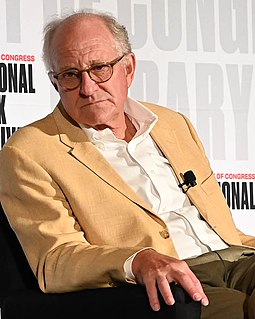A Quote by Michael Hudson
Canada is a malstructured. You could almost call it a failed economy, except that its natural resources are so rich that everybody can get wealthy off making holes in the ground and digging up the oil and polluting the environment.
Related Quotes
We always say Jordan is not rich in natural resources - we don't have oil or gas like some of our neighbors do - but I think in terms of human resources, we are quite lucky and we are really trying to foster an environment of innovation and technology. I think Jordan will emerge as a center of innovation in the Middle East.
A prime example of 'turning the other cheek' would be the United States allowing Canada to exist as a country. Sure, we could take over Canada with ease. We'd certainly benefit from conquering a country rich in natural resources and never-ending comedic talent. Instead, we decide to make friends and treat them with the utmost respect.
We got rich by violating one of the central tenets of economics: thou shall not sell off your capital and call it income. And yet over the past 40 years we have clear-cut the forests, fished rivers and oceans to the brink of extinction and siphoned oil from the earth as if it possessed an infinite supply. We've sold off our planet's natural capital and called it income. And now the earth, like the economy, is stripped.
Probably no single event highlights the strength of Campbell's argument (on peak oil) better than the rapid development of the Alberta tar sands. Bitumen, the world's ugliest and most expensive hydrocarbon, can never be a reasonable substitute for light oil due to its extreme capital, energy, and carbon intensity. Bitumen looks, smells, and behaves like asphalt; running an economy on it is akin to digging up our existing road infrastructure, melting it down, and enriching the goop with hydrogen until it becomes a sulfur-rich but marketable oil.
Bolivia also depends not only on tin and other minerals, but also depends on the gas and oil. A rational extraction should be made, taking care of the environment. We should give added value to this natural resource, and generate revenue to fight poverty with more resources, that come from natural resources.
Look, I don't think President Obama would have bowed to the ruler of Saudi Arabia if he didn't have oil to the degree that the Saudis do. I think they and other producing states, almost all of whom, except Norway and Canada, are dictatorships or autocratic systems, have thrown their weight around because of oil.
Our country has suffered from an on-again, off-again energy policy that has failed to get us to energy independence. As President Obama has said, we need a comprehensive energy plan for the country that includes conventional resources like oil and gas, but that also takes advantage of wind, solar, biomass, geothermal, and other renewable resources.
The rich and powerful countries are trying to wreck as much as possible. You know, go off the cliff as soon as you can. Extract every drop of hydrocarbons off the ground and destroy the environment. At the opposite extreme are countries like Bolivia and Ecuador, indigenous people around the world, and first nations in Canada and tribal people in India, campesinos in Colombia... They're trying to save the commons.
I love these appeals to the "complexity of doing business in Alaska." If you want to live in remote villages or places with hostile weather and environment, that's certainly your right. But why is it you please continue to expect that the rest of us are responsible for making that economically feasible. You already get a big boost from oil and other natural resources. If that's not enough to pay for the infrastructure you say you need, maybe you should consider moving down here. No passport or work visa is required.
All of the easy oil is gone and what's left is requiring more energy and money and this has an effect on everything. Our problem is that we've created an infrastructure that's so dependent on oil. As oil becomes more expensive we're going to be locked into the transportation modes that our economy depends on. So we really need to start building an alternative economy before we get caught in a trap of our own making.



































